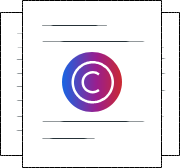Analyze research papers at superhuman speed
Search for research papers, get one sentence abstract summaries, select relevant papers and search for more like them, extract details from papers into an organized table.


Find themes and concepts across many papers
Don't just take our word for it.
.webp)
Tons of features to speed up your research
Upload your own pdfs, orient with a quick summary, view sources for every answer, ask questions to papers, research for the machine intelligence age, pick a plan that's right for you, get in touch, enterprise and institutions, common questions. great answers., how do researchers use elicit.
Over 2 million researchers have used Elicit. Researchers commonly use Elicit to:
- Speed up literature review
- Find papers they couldn’t find elsewhere
- Automate systematic reviews and meta-analyses
- Learn about a new domain
Elicit tends to work best for empirical domains that involve experiments and concrete results. This type of research is common in biomedicine and machine learning.
What is Elicit not a good fit for?
Elicit does not currently answer questions or surface information that is not written about in an academic paper. It tends to work less well for identifying facts (e.g. "How many cars were sold in Malaysia last year?") and in theoretical or non-empirical domains.
What types of data can Elicit search over?
Elicit searches across 125 million academic papers from the Semantic Scholar corpus, which covers all academic disciplines. When you extract data from papers in Elicit, Elicit will use the full text if available or the abstract if not.
How accurate are the answers in Elicit?
A good rule of thumb is to assume that around 90% of the information you see in Elicit is accurate. While we do our best to increase accuracy without skyrocketing costs, it’s very important for you to check the work in Elicit closely. We try to make this easier for you by identifying all of the sources for information generated with language models.
How can you get in contact with the team?
You can email us at [email protected] or post in our Slack community ! We log and incorporate all user comments, and will do our best to reply to every inquiry as soon as possible.
What happens to papers uploaded to Elicit?
When you upload papers to analyze in Elicit, those papers will remain private to you and will not be shared with anyone else.
How accurate is Elicit?
Training our models on specific tasks, searching over academic papers, making it easy to double-check answers, save time, think more. try elicit for free..

AI for Research Papers
Advanced Paper Analysis and Information Retrieval
Used by professionals in

Used by over 1,000,000+ professionals & researchers in
Accelerating Research outcomes with Intelligent Paper Analysis
In the demanding field of research, whether in academia or r&d, efficiently navigation vast amount of data and literature is a critical challenge. sharly ai addresses this by providing a robust tool for comprehensive paper analysis and literature review. it empowers researchers to extract relevant information, synthesize data from diverse sources and accelerate the progression from research to discovery..

Accelerating Research outcomes with Intelligent Data Analysis

How Sharly AI Addresses Research Challenges
Literature review and analysis.
Sharly Al swiftly sifts through
extensive academic databases.
extracting and summarizing key
findings, trends, and methodologies, significantly speeding up the
literature review process.
Aggregation and Synthesis
Aggregate and synthesize information from
multiple research studies or experiments. Sharly Al's advanced analysis provides a comprehensive overview, aiding in the development or new hypotheses and research directions
Research Collaboration
Facilitate collaboration among research teams by streamlining information sharing and analysis ensuring all team members have access to the latest data and insights.
Sharly's AI summarizer is not just a simple AI tool; it's a sophisticated technology capable of discerning key points from complex content accurately. Whether you're dealing with a research paper, a business report or the recording of a meeting, you can rely on Sharly for a comprehensive, accurate summary.
Aggregate and synthesize information from multiple research studies or experiments. Sharly Al's advanced analysis provides a comprehensive overview, aiding in the development or new hypotheses and research directions
Sharly supports various document file formats, including PDF, PDF with OCR, .docx, .doc, .txt, .csv, .rtf, .odt, .ods, .odp. .pptx and .html files. It also supports audio and multimedia files such as .mp3, .mp4, .wav, .webm, .flac, .oga, .ogg and .mpeg.
Sharly Al swiftly sifts through extensive academic databases. extracting and summarizing key findings, trends, and methodologies, significantly speeding up the literature review process.

Enhancing Analysis in Pharmaceutical Research
Facing challenges in integrating diverse clinical trial info, a pharmaceutical r&d team employed sharly ai. this ai tool efficiently processed and synthesized complex data, quickly identifying crucial trends and efficacy markers. this led to a significant reduction in analysis time, fostering rapid insights and informed decision-making in drug development. sharly ai's implementation streamlined the team's workflow, accelerating the pace of research and enhancing the quality of their drug development process..

Facing challenges in integrating diverse clinical trial data, a pharmaceutical R&D team employed Sharly AI. This AI tool efficiently processed and synthesized complex data, quickly identifying crucial trends and efficacy markers. This led to a significant reduction in analysis time, fostering rapid insights and informed decision-making in drug development. Sharly AI's implementation streamlined the team's workflow, accelerating the pace of research and enhancing the quality of their drug development process.
Sharly ai's unique features for researcher, cross-disciplinary information integration.
Merge insights from various fields, enhancing the multidisciplinary approach to research.
Advanced Research Analysis
Advanced data analytics.
Utilize powerful research analysis for deep insights, pattern recognition, and predictive modeling.
Secure Data Management
Prioritize data security and confidentiality, crucial in research environments
Content Compatibility and OCR in PDFs
Extract text from various documents format, including scanned academic papers and reports for comprehensive analysis.
Custom AI Behavior Creation
Tailor AI interactions to suit specific research terminologies, methodologies or punctuation.
Advanced Language Support
Multilingual capabilities for facilitating international and cross-disciplinary collaborations.
Knowledge Source Selection
Option to focus on user-uploaded content or enrich responses with external academic insights.
Citation and Page Notation Features
Precise citation tools for academic referencing and scholarly work.
"Sharly improved our customer support, enabling us to provide faster, more accurate assistance; our customers couldn't be happier."

Sarah Mitchell
Director of Customer Support at SupportPro Innovations
"Sharly has proven essential in guiding me through extensive medical research, offering lucid insights into intricate health-related topics"
Elara Thornfield
Chief Medical Officer at NovaPharm Therapeutics

Try Sharly AI for Research
Start for free — upgrade anytime.
Joining as an organization? Contact Sales
Start for free
Streamline your workflow with AI for research. Streamline your workflow with AI for research.
Chat with articles & analyze your research data in one tool..
Upload & chat with your scientific literature.

Generate literature reviews in seconds.

Perform T-tests, ANOVA, and other statistical tests.

Turn textual content into actionable insights.

Create sleek looking data visualizations.

Save time. Try Julius as your research copilot.
Turn hours of tedious tasks into minutes on Julius.
Summarize PDFs
Chat with any piece of scientific literature.
Generate sleek visualizations
Communicate findings with confidence.
Perform data analysis
Get descriptive statistics in seconds.
Cleaning made effortless
Automate data prep and focus on what matters.
Export instantly
Quickly download data into CSV or Excel for easy sharing.
Unlock statistical modeling
Run any test or statistical workflow without code.
Supercharge your research with AI.
With Julius, you can summarize scientific literature and perform statistical analysis in one place.
Frequently asked questions
If you have anything else you want to ask, reach out to us .

How do I link a data source?
What do i do after linking a data source, what data sources are supported, can i analyze spreadsheets with multiple tabs, can i generate data visualizations, is there a discount for students, professors, or teachers, what is julius’ data privacy policy, is this free.
A free, AI-powered research tool for scientific literature
- Jacob Hacker
- Means of Production
- Metamorphic Rock
New & Improved API for Developers
Introducing semantic reader in beta.
Stay Connected With Semantic Scholar Sign Up What Is Semantic Scholar? Semantic Scholar is a free, AI-powered research tool for scientific literature, based at Ai2.
Start chatting
May 26, 2024
The Best Free AI Tools for Research Paper Understanding
Discover the best free AI tools to simplify and enhance your research paper understanding.
Have you tried ChatLabs?
40 best AI models
at one place!
Get Started
Stay up to date on the latest AI news by ChatLabs

Table of Contents
Introduction.
Benefits of Using AI Tools to Understand Research Papers
Top Free AI Tools for Research Paper Understanding
Research rabbit, google scholar, understand the limitations of ai tools, maximize ai use with incremental promting, useful articles for further insights.
AI apps for academic research are changing they way we access and understand information. These AI tools help students and researchers make sense of complex research papers by offering features like summarization, language translation, and contextual analysis. As AI technology advances, these tools are becoming essential resources that simplify and improve the research process.
Benefits of Using AI Tools for Research Papers
AI for Academic Research provides significant benefits in understanding complex research papers. AI tools help in understanding of research papers in several ways:
Time-saving automation : AI to brilliantly automates repetitive tasks, helping you process large amounts of information quickly and efficiently.
Summarization : AI can quickly summarize lengthy research papers, highlighting key points and saving your time.
Language translation : For non-native speakers, AI can translate research papers into their preferred language, making academic content more accessible.
Contextual analysis : AI tools can analyze the context of a paper, providing insights into its significance and relevance in the field.
Keyword extraction : AI can extract important keywords from a research paper, aiding in quick comprehension of the main topics.
Comparative analysis : AI allows for comparing multiple research papers, identifying similarities, differences, and trends across studies.
These features make AI tools crucial assistants academic research, helping students and researchers to efficiently navigate and understand complex scientific literature.
There are many useful AI-powered tools that can help you better understand complex research papers. Here are some of the best options available:
ChatLabs offers access to over 30 popular AI models, including their advanced versions. This variety allows users to select the model that best suits their specific research needs. For example, one model might be excellent for data analysis, while another excels in language translation or generating creative content.
With such a wide range of AI models available on ChatLabs, researchers from any academic field can find valuable tools for their work. Humanities scholars can use AI for text analysis and interpretation, while science researchers might use AI for complex calculations, data modeling, or predictive analytics.

A standout feature of ChatLabs is its AI Web Search plugin , which allows AI models to access the internet directly. This capability is incredibly useful for literature reviews, fact-checking, and keeping up with the latest research developments.
Key Features: – Access to All best AI Models: Users gain access to both paid and free AI models with one subscription. – Image Generation: Supports AI image generation by Dalle 3 and Stable Diffusion. – Web Search: Helps seek needed documents and research. – File Handling: Interprets graphs and data from tables and searches for information within any file. – YouTube Summarization: Helps quickly summarize any scientific video. – AI Split View: Allows users to compare responses from different models, including execution speed, token usage, and accuracy. – GPT Assistant: you can add your instructions and files to customize any AI model and create specialized assistant for your needs.
Research Rabbit offers a unique way to streamline academic exploration. This free and underutilized tool in the academic community allows users to organize papers into 'collections.' These collections help tailor recommendations based on individual interests, similar to how ChatLabs AI personalizes responses. Additionally, it visualizes scholarly networks through graphs, showing connections between papers and co-authors. This feature enables researchers to dive deeper into specific topics or authors, making it an essential tool for anyone engaged in AI for academic research .
Key Features: – Literature Discovery: Identifies and suggests relevant academic papers and research articles based on user interests. – Visual Exploration: Provides interactive visual graphs for exploring connections between papers, authors, and topics. – Collaboration: Allows users to share collections of papers and collaborate on literature reviews. – Integration: Integrates with existing research databases and tools for seamless access to literature.
Scite.ai Scite.ai enhances academic research by helping users discover, evaluate, and understand scientific literature more effectively. It addresses the issue of AI models sometimes generating inaccurate or non-existent citations by providing real references from published papers. It enhances the trustworthiness and reliability of academic research. Scite.ai not only answers queries with detailed citation lists but also evaluates the support or refutation for any claim across various journals, making it a powerful resource for AI for research .

Key features: – Citation Context: Provides context for citations, showing how a paper has been cited by others. – Smart Citations: Classifies citations as supporting, contrasting, or mentioning the cited work. – Author Profiles: Allows users to view and track an author's publication and citation metrics. – Reference Check: Helps verify the accuracy of references and find supporting or contradicting evidence. – Integration: Works with various reference management tools and databases.
Perplexity serves as an AI-driven search and research assistant, highly beneficial for academic research and medical students. It is primarily trained on factual information and structured data, making it an effective tool for discovering knowledge and conducting research.

Key features: – Advanced Summarization: Simplifies complex articles and provides human-like explanations for easier understanding. – Media Support: Handles various formats like images, videos, and PDFs, enriching the responses. – PDF Features: Offers faster and more relevant answers for queries involving PDFs. – Co-Pilot Feature: Refines search results through interactive queries, delivering tailored responses.
Google Scholar is a search engine powered by AI, designed by Google to help academics and researchers locate and access scholarly literature. It is one of the top AI tools for academic research , enabling users to keep up-to-date with the latest studies, articles, conference papers, and theses. This is a freely accessible web search engine that indexes the full text or metadata of scholarly literature across various formats and disciplines.
Key features: – Comprehensive Search: Searches across a wide range of academic sources including articles, theses, books, and conference papers. – Citations: Tracks citations of articles and provides citation metrics like h-index and i10-index for authors. – Profiles: Researchers can create profiles to showcase their publications and citation metrics. – Library Links: Integrates with institutional libraries to provide access to full-text articles.
Elicit.org, known as "the AI research assistant," stands out as a leading tool in AI for academic research . This innovative platform uses advanced language models to support dynamic discussions and brainstorming, leveraging a vast research database. It effectively identifies and summarizes pertinent academic papers, even when keywords are not an exact match, and extracts critical information to aid both researchers and students.
Key features: – Research Question Assistance: Helps users formulate and refine research questions. – Literature Summarization: Summarizes key findings from relevant literature. – Data Extraction: Extracts specific data points from research papers. – Evidence Synthesis: Aggregates and synthesizes evidence from multiple studies. – Automated Workflows: Streamlines repetitive research tasks, such as data coding and result tabulation. – Collaboration Tools: Facilitates collaborative research efforts and sharing of insights among team members.
Consensus is another noteworthy AI tool that merges the capabilities of ChatGPT and Google Scholar. It is a search engine designed to provide clear answers based on academic consensus. Users can ask Yes/No questions, and Consensus replies with the collective opinion of the academic community, summarizing the top papers supporting its answers. It covers topics like economics, sleep, social policy, medicine, mental health, and health supplements, offering insights based on numerous studies.
Key features: – Natural Language Search: Allows users to ask research questions in natural language. – Evidence-Based Answers: Provides answers based on aggregated evidence from academic papers. – Summarization: Summarizes research findings relevant to the user's query. – Citation Extraction: Extracts and displays citations supporting the provided answers.
ChatPDF makes reading and analyzing academic papers easier by acting as an "AI for research" tool that helps with academic studies. Similar to ChatGPT but focused on research papers, users upload a PDF of their paper into the app. The app then creates a concise summary and suggests questions based on the paper's content. This feature makes ChatPDF a valuable tool for students and researchers, especially in fields like AI in medicine, improving both efficiency and understanding.

Key features:: – Interactive PDF Chat: Users can upload any PDF and ask questions to get instant answers and summaries, similar to interacting with ChatGPT but specifically for PDF documents. – Multi-File Chats: Allows the creation of folders to organize and chat with multiple PDFs in a single conversation. – Citation Context: Provides references to the original sources within the PDF for the answers it generates. – API Integration: Offers an API for programmatic access to its functionalities, allowing users to integrate PDF chatting capabilities into their own applications.
While AI tools are incredibly useful, they can sometimes produce biased or inaccurate information. It's important to be aware of these limitations and use AI tools carefully to get the most value from them. Always double-check the information provided by AI models against actual research papers and verified scientific sources. Understanding that the best work AI can do for you is automation helps you handle large amounts of information more quickly, saving you valuable time. By verifying AI-generated content with real scientific research, you can ensure that your insights are accurate and dependable. Using AI thoughtfully not only enhances its benefits but also encourages a more informed and critical approach to academic research.
Here are some key points to keep in mind when using AI tools for academic research:
Double-Check Information : Always verify the data provided by AI models to ensure its accuracy.
Rely on Research Papers : Cross-reference AI-generated insights with actual research papers and verified scientific sources.
Critical Use : Use AI tools thoughtfully to maximize their benefits while maintaining a critical approach to the information they provide.
One effective approach is incremental prompting, which breaks down complex tasks into simpler, manageable steps. Originally used in behavioral therapy and special education, this method involves giving cues that gradually increase in complexity. This technique not only builds confidence but also enables AI tools for research like ChatGPT to provide more detailed and accurate responses.
For instance, when working on a research paper, you can start by discussing specific concepts with ChatGPT. Then, you can delve into relevant authors and their theories, helping the AI grasp the necessary background information. Once the AI understands the context, it can assist in outlining the paper. By expanding on each point in the outline, you can quickly draft a strong initial version of your research paper.
The integration of AI for academic research offers remarkable tools that can significantly enhance the process of understanding complex research papers. Whether through summarization, contextual analysis, or accurate citations, these AI tools for research provide invaluable assistance to students and researchers alike. From the versatile capabilities of Google Scholar to the innovative features of Elicit.org and the reliability of Scite.ai, these tools exemplify the best AI for medical students and other academic disciplines. By leveraging these resources, you can streamline your research process and gain deeper insights, ultimately making your academic journey more efficient and effective.
AI Tools For Medical Students: Use Cases
How to Use AI and ChatGPT for Your Personal Statement - a Guide
Optimizing Medical Studies with the Best AI Tools
10 Ways How AI Tools Can Help Students Pass Exams in 2024
The Best ChatGPT Prompts For Your Medical Research
Write, Create, and Learn Differently!
Use the best ai models together, without chatgpt limitations. make your projects easier and more exciting, start chatting now.
© 2024 ChatLabs
Privacy Policy
Refund Policy
The Fastest Way to Read Research Papers self.__wrap_b=(t,n,e)=>{e=e||document.querySelector(`[data-br="${t}"]`);let s=e.parentElement,r=B=>e.style.maxWidth=B+"px";e.style.maxWidth="";let o=s.clientWidth,u=s.clientHeight,a=o/2-.25,c=o+.5,p;if(o){for(r(a),a=Math.max(e.scrollWidth,a);a+1 {self.__wrap_b(0,+e.dataset.brr,e)})).observe(s):process.env.NODE_ENV==="development"&&console.warn("The browser you are using does not support the ResizeObserver API. Please consider add polyfill for this API to avoid potential layout shifts or upgrade your browser. Read more: https://github.com/shuding/react-wrap-balancer#browser-support-information"))};self.__wrap_b(":Riim:",1)
Upload a paper, highlight confusing text, get an explanation. We make research papers easy to read.
Used by the best researchers
See what researchers think of Explainpaper
Become an Expert in Anything.
Explainpaper is free - so let's get started.

The best AI tools for research papers and academic research (Literature review, grants, PDFs and more)
As our collective understanding and application of artificial intelligence (AI) continues to evolve, so too does the realm of academic research. Some people are scared by it while others are openly embracing the change.
Make no mistake, AI is here to stay!
Instead of tirelessly scrolling through hundreds of PDFs, a powerful AI tool comes to your rescue, summarizing key information in your research papers. Instead of manually combing through citations and conducting literature reviews, an AI research assistant proficiently handles these tasks.
These aren’t futuristic dreams, but today’s reality. Welcome to the transformative world of AI-powered research tools!
This blog post will dive deeper into these tools, providing a detailed review of how AI is revolutionizing academic research. We’ll look at the tools that can make your literature review process less tedious, your search for relevant papers more precise, and your overall research process more efficient and fruitful.
I know that I wish these were around during my time in academia. It can be quite confronting when trying to work out what ones you should and shouldn’t use. A new one seems to be coming out every day!
Here is everything you need to know about AI for academic research and the ones I have personally trialed on my YouTube channel.
My Top AI Tools for Researchers and Academics – Tested and Reviewed!
There are many different tools now available on the market but there are only a handful that are specifically designed with researchers and academics as their primary user.
These are my recommendations that’ll cover almost everything that you’ll want to do:
Want to find out all of the tools that you could use?
Here they are, below:
AI literature search and mapping – best AI tools for a literature review – elicit and more
Harnessing AI tools for literature reviews and mapping brings a new level of efficiency and precision to academic research. No longer do you have to spend hours looking in obscure research databases to find what you need!
AI-powered tools like Semantic Scholar and elicit.org use sophisticated search engines to quickly identify relevant papers.
They can mine key information from countless PDFs, drastically reducing research time. You can even search with semantic questions, rather than having to deal with key words etc.
With AI as your research assistant, you can navigate the vast sea of scientific research with ease, uncovering citations and focusing on academic writing. It’s a revolutionary way to take on literature reviews.
- Elicit – https://elicit.org
- Litmaps – https://www.litmaps.com
- Research rabbit – https://www.researchrabbit.ai/
- Connected Papers – https://www.connectedpapers.com/
- Supersymmetry.ai: https://www.supersymmetry.ai
- Semantic Scholar: https://www.semanticscholar.org
- Laser AI – https://laser.ai/
- Inciteful – https://inciteful.xyz/
- Scite – https://scite.ai/
- System – https://www.system.com
If you like AI tools you may want to check out this article:
- How to get ChatGPT to write an essay [The prompts you need]
AI-powered research tools and AI for academic research
AI research tools, like Concensus, offer immense benefits in scientific research. Here are the general AI-powered tools for academic research.
These AI-powered tools can efficiently summarize PDFs, extract key information, and perform AI-powered searches, and much more. Some are even working towards adding your own data base of files to ask questions from.
Tools like scite even analyze citations in depth, while AI models like ChatGPT elicit new perspectives.
The result? The research process, previously a grueling endeavor, becomes significantly streamlined, offering you time for deeper exploration and understanding. Say goodbye to traditional struggles, and hello to your new AI research assistant!
- Consensus – https://consensus.app/
- Iris AI – https://iris.ai/
- Research Buddy – https://researchbuddy.app/
- Mirror Think – https://mirrorthink.ai
AI for reading peer-reviewed papers easily
Using AI tools like Explain paper and Humata can significantly enhance your engagement with peer-reviewed papers. I always used to skip over the details of the papers because I had reached saturation point with the information coming in.
These AI-powered research tools provide succinct summaries, saving you from sifting through extensive PDFs – no more boring nights trying to figure out which papers are the most important ones for you to read!
They not only facilitate efficient literature reviews by presenting key information, but also find overlooked insights.
With AI, deciphering complex citations and accelerating research has never been easier.
- Aetherbrain – https://aetherbrain.ai
- Explain Paper – https://www.explainpaper.com
- Chat PDF – https://www.chatpdf.com
- Humata – https://www.humata.ai/
- Lateral AI – https://www.lateral.io/
- Paper Brain – https://www.paperbrain.study/
- Scholarcy – https://www.scholarcy.com/
- SciSpace Copilot – https://typeset.io/
- Unriddle – https://www.unriddle.ai/
- Sharly.ai – https://www.sharly.ai/
- Open Read – https://www.openread.academy
AI for scientific writing and research papers
In the ever-evolving realm of academic research, AI tools are increasingly taking center stage.
Enter Paper Wizard, Jenny.AI, and Wisio – these groundbreaking platforms are set to revolutionize the way we approach scientific writing.
Together, these AI tools are pioneering a new era of efficient, streamlined scientific writing.
- Jenny.AI – https://jenni.ai/ (20% off with code ANDY20)
- Yomu – https://www.yomu.ai
- Wisio – https://www.wisio.app
AI academic editing tools
In the realm of scientific writing and editing, artificial intelligence (AI) tools are making a world of difference, offering precision and efficiency like never before. Consider tools such as Paper Pal, Writefull, and Trinka.
Together, these tools usher in a new era of scientific writing, where AI is your dedicated partner in the quest for impeccable composition.
- PaperPal – https://paperpal.com/
- Writefull – https://www.writefull.com/
- Trinka – https://www.trinka.ai/
AI tools for grant writing
In the challenging realm of science grant writing, two innovative AI tools are making waves: Granted AI and Grantable.
These platforms are game-changers, leveraging the power of artificial intelligence to streamline and enhance the grant application process.
Granted AI, an intelligent tool, uses AI algorithms to simplify the process of finding, applying, and managing grants. Meanwhile, Grantable offers a platform that automates and organizes grant application processes, making it easier than ever to secure funding.
Together, these tools are transforming the way we approach grant writing, using the power of AI to turn a complex, often arduous task into a more manageable, efficient, and successful endeavor.
- Granted AI – https://grantedai.com/
- Grantable – https://grantable.co/
Best free AI research tools
There are many different tools online that are emerging for researchers to be able to streamline their research processes. There’s no need for convience to come at a massive cost and break the bank.
The best free ones at time of writing are:
- Elicit – https://elicit.org
- Connected Papers – https://www.connectedpapers.com/
- Litmaps – https://www.litmaps.com ( 10% off Pro subscription using the code “STAPLETON” )
- Consensus – https://consensus.app/
Wrapping up
The integration of artificial intelligence in the world of academic research is nothing short of revolutionary.
With the array of AI tools we’ve explored today – from research and mapping, literature review, peer-reviewed papers reading, scientific writing, to academic editing and grant writing – the landscape of research is significantly transformed.
The advantages that AI-powered research tools bring to the table – efficiency, precision, time saving, and a more streamlined process – cannot be overstated.
These AI research tools aren’t just about convenience; they are transforming the way we conduct and comprehend research.
They liberate researchers from the clutches of tedium and overwhelm, allowing for more space for deep exploration, innovative thinking, and in-depth comprehension.
Whether you’re an experienced academic researcher or a student just starting out, these tools provide indispensable aid in your research journey.
And with a suite of free AI tools also available, there is no reason to not explore and embrace this AI revolution in academic research.
We are on the precipice of a new era of academic research, one where AI and human ingenuity work in tandem for richer, more profound scientific exploration. The future of research is here, and it is smart, efficient, and AI-powered.
Before we get too excited however, let us remember that AI tools are meant to be our assistants, not our masters. As we engage with these advanced technologies, let’s not lose sight of the human intellect, intuition, and imagination that form the heart of all meaningful research. Happy researching!
Thank you to Ivan Aguilar – Ph.D. Student at SFU (Simon Fraser University), for starting this list for me!

Dr Andrew Stapleton has a Masters and PhD in Chemistry from the UK and Australia. He has many years of research experience and has worked as a Postdoctoral Fellow and Associate at a number of Universities. Although having secured funding for his own research, he left academia to help others with his YouTube channel all about the inner workings of academia and how to make it work for you.
Thank you for visiting Academia Insider.
We are here to help you navigate Academia as painlessly as possible. We are supported by our readers and by visiting you are helping us earn a small amount through ads and affiliate revenue - Thank you!

2024 © Academia Insider

RAxter is now Enago Read! Enjoy the same licensing and pricing with enhanced capabilities. No action required for existing customers.
AI-Powered Literature Review: Faster, Deeper, Smarter
Enago Read simplifies literature reviews by delivering smart AI-driven summaries, key insights, real-time discovery, and a copilot that empowers you to master the literature with superhuman speed.
From Surface-Level Exploration to Critical Reading - All in one Place!
Absorb complex research in seconds with intelligent, high-impact summaries and key insights.
AI-powered literature discovery helps you explore related papers and uncover new insights with intelligent recommendations.
Ask questions and receive real-time answers for deeper understanding of complex literature, guiding you through even the most intricate studies.
Literature Review Made Easy
Copilot: go from overwhelmed to enlightened in moments.
Get instant insights, clarity, and deeper understanding in an instant.
Summaries: Decide What to Read, Faster
Reduce information overload by focusing only on papers that matter.
Key Insights: Unlock the Paper's Core Ideas
Quickly understand key takeaways and focus on the most important points of literature.
Discover Related Literature from a 200 Million+ Database
Effortlessly discover literature related to paper you are reading, without getting lost in the endless maze of papers.
Find papers from across the world's largest repositories

Testimonials
Privacy and security of your research data are integral to our mission..

Everything you add or create on Enago Read is private by default. It is visible only to you.

You can put Creative Commons license on original drafts to protect your IP.

We use advanced security protocols including MD5 Encryption, SSL, and HTTPS to secure your data.

IMAGES
VIDEO
COMMENTS
“A meta-analysis of 30 randomized, double-blind, placebo-controlled trials concluded that fish oil consumption can significantly reduce heart rate (Mozaffarian 2005).In particular, the effect was greater in people whose baseline heart rate was higher: in the overall pooled estimate, fish oil decreased heart rate by 1.6 bpm compared to placebo, but reduced heart rate by 2.5 bpm in trials with ...
With Scholarcy Library you can import unlimited documents and generate summaries for all your course materials or collection of research papers. Scholarcy Library offers additional features including access to millions of academic research papers, customizable summaries, direct import from Zotero and more.
Apr 6, 2024 · A research paper is a piece of academic writing that provides analysis, interpretation, and argument based on in-depth independent research. Research papers are similar to academic essays, but they are usually longer and more detailed assignments, designed to assess not only your writing skills but also your skills in scholarly research.
In the demanding field of research, whether in academia or R&D, efficiently navigation vast amount of data and literature is a critical challenge. Sharly AI addresses this by providing a robust tool for comprehensive paper analysis and literature review.
Streamline your workflow with AI for research.Chat with articles & analyze your research data in one tool. Try for free. Loved by over 1,000,000 users worldwide.
Try it for select papers. Learn More G r een AI R o y Schwa r tz, Jesse Dodge, N. A. Smith, O r en Etzioni 2020 C r eating efficiency in AI r esea r ch will dec r ease its carbon footprint and inc r ease its inclusivity as deep learning study should not r equi r e the deepest poc k ets.
May 26, 2024 · Summarization: AI can quickly summarize lengthy research papers, highlighting key points and saving your time. Language translation: For non-native speakers, AI can translate research papers into their preferred language, making academic content more accessible. Contextual analysis: AI tools can analyze the context of a paper, providing ...
Nov 22, 2022 · The Fastest Way to Read Research Papers. Upload a paper, highlight confusing text, get an explanation. We make research papers easy to read. Start for free.
Apr 26, 2024 · AI for scientific writing and research papers. In the ever-evolving realm of academic research, AI tools are increasingly taking center stage. Enter Paper Wizard, Jenny.AI, and Wisio – these groundbreaking platforms are set to revolutionize the way we approach scientific writing.
Find, summarize, and understand research papers quickly with Enago Read, your AI-powered assistant for literature review. Refer to help Enago Read get more feedback to keep the magic going! In appreciation, get $12 credits.